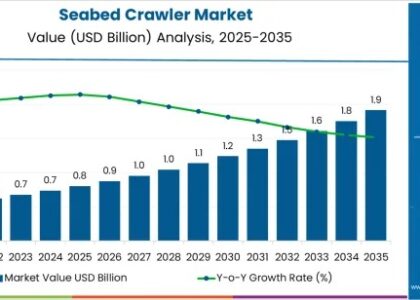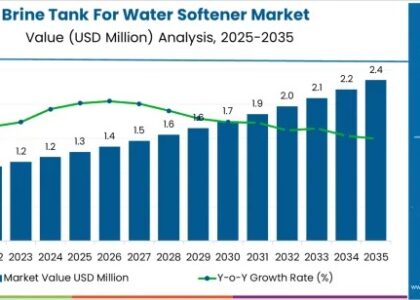The vegan and flexitarian population is increasing rapidly across the globe. Plant-based yogurts are being perceived as more sustainable and better for the environment as compared to dairy-based yogurts. Plant-based yogurt products are either made from nut-based milk or cereals, legumes, or seeds-based milk.
Since nutritional value continues to play a significant role in influencing consumers’ decisions to purchase plant-based yoghurt, customers are searching for contaminants they don’t want in their food. This includes extra sugar and substances that appear to be chemicals. Manufacturers of plant-based yoghurt are conducting numerous studies to enhance flavour, taste, and texture. They are producing yoghurt with flavours like mango and blueberry using unconventional bases like hemp or oat.
These yogurts are gaining traction in the plant-based food industry, leading to the market’s well-positioned growth.
Get your hands on our Sample Report to stay up-to-date on the latest developments in the Compound Feed industry. Download now!@
https://www.futuremarketinsights.com/reports/sample/rep-gb-11684
In 2019, Springfield Creamery, Inc. based in Europe launched oatmilk plant-based yogurt, which is gluten-free and delivers billions of probiotics per serving, the product contains 30-50% less sugar than competitors brands. In 2016, Anita’s Yogurt based in U.S. launched plant-based coconut milk yogurt with three flavours such as mango, blueberry and plain. All the products are free of added sugar, preservatives, or additives.
The FMI study delves deeper into the prevailing dynamics to offer interesting insights into the plant-based yogurt market. Some of these are:
Plant-based yogurt is available in many flavours such as vanilla, blueberry, raspberry, strawberry, and peach among others. The strawberry flavor is expected to grow at a highest CAGR of 14.7% over the forecast period. Europe and North America are expected to remain the dominant markets for plant-based yogurts. Acquisitions and partnerships by big giants will give significant impetus to the plant-based yogurt market across these regions. Consumers are seeing organic plant-based yogurts as a nutritious and healthy option to conventional yogurts. Organic plant-based yogurts are expected to witness high CAGR of 13.1% over the forecast period.
Consumers are becoming more aware of healthier ways of living. As a result they prefer eating healthy and spending more on functional food than to spending on medical treatments. Increasing focus on health and wellness among consumers due to COVID-19 outbreak is expected to provide pace to plant-based yogurt market over the forecast period.
“Plant-based diet is trending and manufacturers are capitalizing on this opportunity by offering delicious plant-based yogurts in the market. The plant-based yogurt is becoming a promising alternative to conventional yogurts and are likely to witness significantly high demand in the coming years. Manufacturers are focussing on product quality, product innovations, and consistent product availability. They are also partnering with various retailers to make their products available across the world.” said a lead analyst at FMI
Increasing Demand for Plant-based Products Boosts Growth Prospects
Plant-based yogurts are manufactured from sources such as legumes, seeds, nuts and grains, especially from soy, coconut, almond, and oats, which are all plant-based. Since the demand for plant-based ingredients and products is skyrocketing in the food and beverage industry, the non-dairy yogurt market is expected to witness significant growth.
Besides this, the increasing incidences of health issues associated with dairy products, increasing vegan and flexitarian population, and growing concern about animal welfare is leading to increasing market prospects for plant-based yogurts.
According to the Plant-based Food Association, in 2019 plant-based yogurts generated maximum sales in U.S. than other plant-based products such as milk, cheese, and butter among others. According to a Forbes report, animal milk and dairy products sales are declining rapidly with almost 11% drop as predicted in sales between 2015 and 2020.
Visit for Customization Before Purchasing @
https://www.futuremarketinsights.com/customization-available/rep-gb-11684
Market Segmentation
The global plant-based yogurt market is segmented in detail to cover every aspect of the market and present complete market intelligence to readers.
Nature
Conventional Organic
Product Type
Cereal Type Oat Rice Corn Spelt Legume Soy Pea Peanut Lupin Chick Pea Nut Almond Coconut Hazelnut Pistachio Walnut Cashew Pili Nut Seed Sesame Flax Hemp Sunflower Pseudo Cereal Quinoa Teff Amarnath Cassava
Flavour
Regular Vanilla Strawberry Blueberry Cherry Peach Raspberry Coconut Coffee Others
Price Range
Economic Mid-Range Premium
Sales Channel
Food Service Retail Modern Trade Convenience Stores Specialty Stores Discounters Independent Small Groceries E-commerce Others
Global
North America Latin America Europe East Asia South Asia Oceania MEA
Who is winning?
The plant-based yogurt market is consolidated with ~70%of its share belonging to tier 1 players. Although several new manufacturers have entered in the market, largest share of the market remains with top manufacturers, mostly belonging from the Europe and U.S. Manufacturers are engaging in increasing their product portfolio by expanding their operations to other regions by strengthening their distribution channels.
Furthermore, multinational companies are focusing on expansion of their manufacturing facilities, partnerships, and acquiring local players that would complement their product offerings.
In 2018, The Oatly AB opened its first production plant in U.S. to offer dairy-free products made from oats such as Oatgurt Natural, Oatgurt Vanilla, and Oatgurt Blueberry Raspberry among others to increase its revenue. In 2019, Valsoia S.p.A made a partnership with Nordic food to distribute its plant-based products in Europe. Nordic Foods will distribute 34 products in Romania through hypermarket and supermarket chains. In 2017, Danone S.A. acquired WhiteWave Foods to expand its plant-based product portfolio and strengthen its position in the U.S. plant-based product market.
Get Valuable Insights into Plant-based Yogurt Market
Future Market Insights, in its new report, presents an unbiased analysis of the global plant-based yogurt market, covering historical demand data and forecast figures for the period between 2020 and 2030. The study divulges compelling insights into growth witnessed in the market. Based on nature the market can be segmented into conventional and organic.
In terms of flavour, the market can be segmented into regular, vanilla, strawberry, blueberry, cherry, peach, raspberry, coconut, coffee, and others. Based on product type the market can be segmented into cereal type, legume, nut, seed, and pseudo cereal. Based on price range the market can be segmented into economic, mid-range, and premium. Based on sales channel the market can be segmented into food service and retail. Regionally, the market covers North America, Latin America, Europe, East Asia, South Asia, Oceania and MEA.
Plant-based Yogurt Market Outlook & Key Findings
Future Market Insights (FMI) forecasts a positive outlook for global plant-based yogurt market and projects a CAGR of 10% between 2020 and 2030 Plant-based snacks will secure hot-selling tag as consumers tilt in favor of healthy and vegan diet Over 50% of plant-based yogurt produced last year was derived from nut, finds FMI Despite availability in various flavors, regular plant-based yogurt will remain consumer favorites, accounting for nearly one-fourth of the market Other factors cited by FMI includes rising prevalence of lactose intolerance and a strong desire to align one’s food choices with environmental sustainability
Ask Our Analyst More about Report @ https://www.futuremarketinsights.com/ask-question/rep-gb-11684
About Us
Future Market Insights (ESOMAR certified market research organization and a member of Greater New York Chamber of Commerce) provides in-depth insights into governing factors elevating the demand in the market. It discloses opportunities that will favor the market growth in various segments on the basis of Source, Application, Sales Channel and End Use over the next 10-years.
Contact:
Future Market Insights Inc.
Christiana Corporate,
200 Continental Drive,
Suite 401, Newark,
Delaware – 19713, USA
T: +1-845-579-5705
For Sales Enquiries: sales@futuremarketinsights.com
Browse latest Market Reports: https://www.futuremarketinsights.com/reports
LinkedIn | Twitter | Blogs





